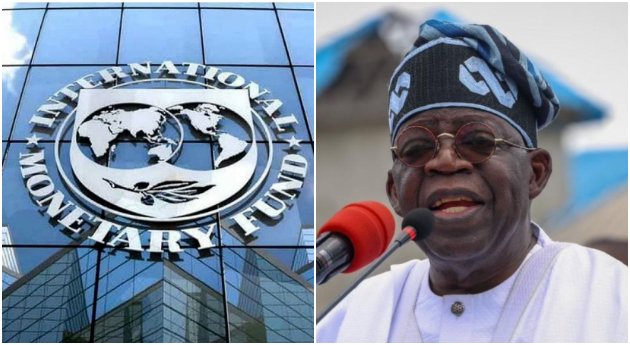IMF has asked President Tinubu to entirely stop the payment of electricity subsidy amid tariff hike protests by organized labour and other Nigerians.
NewsOnline Nigeria reports that the International Monetary Fund (IMF) has advised the Nigerian government regarding the urgent need to remove what it described as ‘implicit’ subsidies on electricity and fuel, which are projected to consume three per cent of the nation’s Gross Domestic Product (GDP) in 2024, up from one per cent in the previous year.
This Nigeria news platform understands that the IMF lauded the Federal Government’s efforts to phase out energy subsidies, which it labelled as costly and regressive, in a recent report.
According to the IMF, this move is crucial for freeing up fiscal space for development spending, bolstering social protection, and ensuring debt sustainability.
ALSO: Organized Labour Embarks On Nationwide Protest Over Electricity Tariff Hike
Following his inauguration on May 29, 2023, President Bola Tinubu took significant steps by eliminating fuel subsidies.
The IMF, however, noted that compensatory measures intended to support the economically disadvantaged were not adequately scaled up and were subsequently halted due to concerns over corruption.
The report highlighted that at the end of 2023, the government reintroduced implicit subsidies by capping fuel prices below cost, as a measure to assist Nigerians grappling with high inflation and currency depreciation.
The IMF’s report also noted the significant hike in electricity prices for premium consumers on Band A feeders, who represent 15 per cent of the 12 million customers but account for 40 per cent of total electricity usage.
Despite the public outcry and calls for the reversal of the electricity tariff from N206.80 per kilowatt-hour back to N68, the IMF argued that the tariff adjustment is essential for reducing government expenditure on subsidies by 0.1 per cent of GDP. It emphasized the need for continued support to the vulnerable sectors, especially in rural areas.
The global financial institution advocated for the elimination of these implicit subsidies as soon as a robust safety net is established and inflation levels stabilize, stating that “costly and untargeted fuel and electricity subsidies should be removed while retaining a lifeline tariff for essential consumption.”
According to IMF projections, the implicit fuel subsidy expense could skyrocket to as much as N8.4 trillion in 2024, a stark increase from N1.85 trillion in 2023.
Additionally, the subsidy for electricity for customers under Bands B, C, D, and E could reach N540 billion by the end of 2024.
The call for the removal of the electricity subsidy coincides with significant public dissent, with organized labor threatening to stage protests if the Minister of Power, Adebayo Adelabu, does not revert the Band A tariff to its former rate by Monday.
The Nigerian National Petroleum Company, along with the Minister of State for Petroleum (Gas), Heineken Lokpobiri, also denied allegations that the Federal Government was clandestinely continuing fuel subsidy payments.
